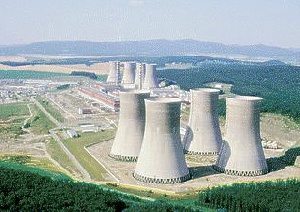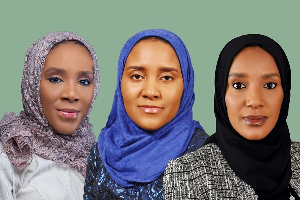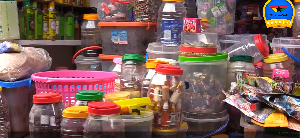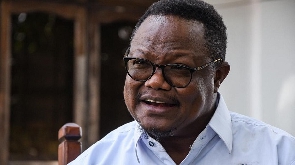Accra, June 16, GNA - Energy Minister Dr Joe Oteng-Adjei, on Wednesday said exploitation of nuclear energy for peaceful civilian usage as a secured alternative fuel source for electricity was high on government's agenda. He said government was committed to partnering advanced nuclear nations to learn from their rich experience to deal with nuclear waste, as well as minimise the 'front and back-end investments' common to developing countries.
Dr Oteng-Adjei said this in a speech read on his behalf at the opening session of a two-day Global Nuclear Energy Partnership (GNEP) Steering Committee forum organised by the Energy Commission (EC) in Accra. Sixteen countries on September 16, 2007 came together to form GNEP to promote safe, secure and global use of nuclear energy for peaceful purposes. Dr Oteng-Adjei said government considered GNEP's partnership as a requisite condition for the exploitation of nuclear energy for peaceful electricity usage, adding that the move would support the regime's "Better Agenda" of achieving its socio-economic target.
"I have no doubt in my mind that GNEP would not hesitate to offer Ghana acceptable ways to develop her national nuclear strategies in a safe and secured manner. It is essentially for this reason that Ghana considers her membership of GNEP as not only relevant but as an opportunity to benefit from the rich experiences of advanced nuclear States," he said. Dr Oteng-Adjei expressed the hope that participants and energy experts drawn from member countries would exchange ideas in nuclear energy development, explore future strategies and develop plans to promote sustainable development of nuclear energy devoid of the risks of proliferation.
Dr Alfred K. Ofosu Ahenkorah, Executive Secretary of EC, who described the meeting as historic due to the fact that it was the first GNEP Steering Group meeting to be held in Africa, said more than 51 countries, including Ghana, were involved in the partnership. Mr B.J. B. Nyarko, Director, National Nuclear Research Institute (NNRI) of Ghana Atomic Energy Commission (GAEC), observed that about 1.6 billion people had no access to electricity and 2.4 billion people relied on traditional biomass for cooking and heating due to the lack of access to modern fuels.
He predicted that based on an estimated world population of more than eight billion by 2030, increasing global demand for energy would result in a 50 per cent demand in energy consumption.
Mr Nyarko noted that Ghana's hydro power system, over the past two and half decades, had been unreliable due to periodic droughts in the water catchment areas in the country.
He expressed worry that efforts to address the hydro power problem through the use of thermal power generators had been beleaguered with challenges, adding that the thermal power generators had become expensive to run due to the high cost of crude oil on the international market. Mr Nyarko gave the assurance that GAEC would work in collaboration with GNEP, other international organisations and stakeholders in the energy sector to make Ghana's nuclear programme a success. 16 June 10
General News of Wednesday, 16 June 2010
Source: GNA













